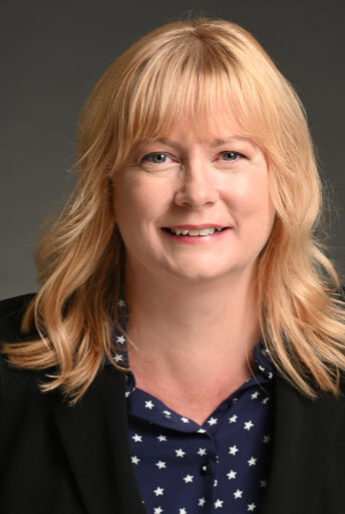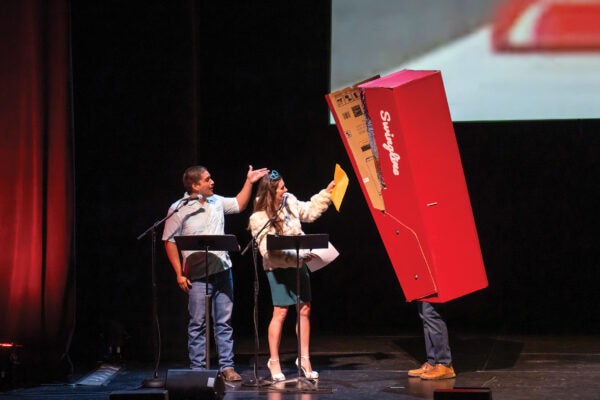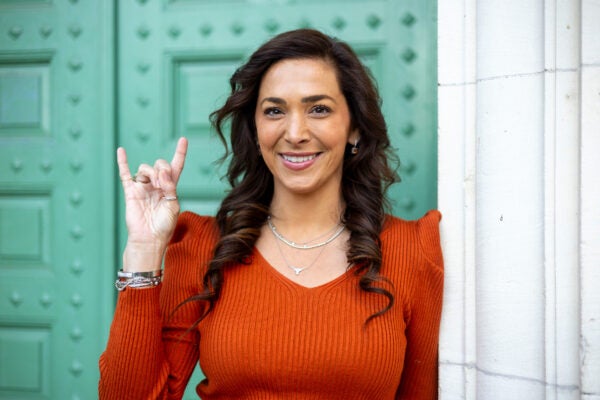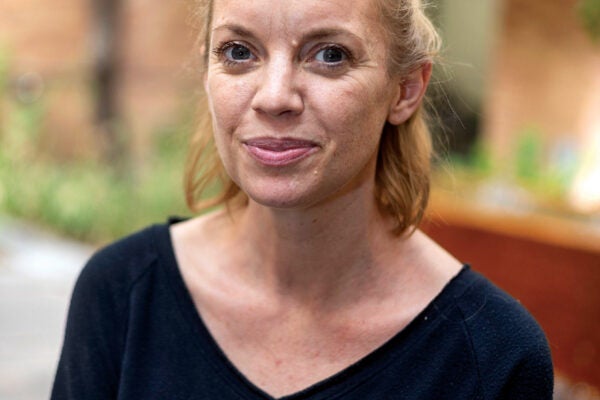For nearly two years, Sandra A. Catlett has been the executive assistant for the director of McDonald Observatory, working out of Austin, and she is also the newly elected chair of Staff Council. Catlett talked with Texas Connect about her work at The University of Texas at Austin and some of what went into the planning of McDonald’s 80th anniversary celebration this summer.
(Some responses have been edited for length and clarity.)
Please tell us a little bit about yourself.
I was born in Memphis, Tennessee, then moved to the east coast of North Carolina for high school and college. I graduated from the University of North Carolina at Wilmington with a degree in communication studies. After living in Charleston, South Carolina, for a short while, I packed up and moved to Austin — no job, no family nearby — and crossed my fingers. Fortunately, it worked out. I worked for the Austin American-Statesman and for a legislative affairs law firm before coming to UT in 2009.
I recently adopted two dogs from local shelters. I planned to adopt larger dogs, but the first dog I adopted weighed 15 pounds, and the second one is 6 pounds.
How would you describe what you do at The University of Texas?
In supporting the director of McDonald Observatory, I manage his very busy schedule to ensure that he is able to oversee the education and outreach, research and fundraising priorities of the observatory, in addition to our participation as a founding university supporter of the Giant Magellan Telescope. My day-to-day responsibilities can include things like facilitating the visit of a Texas legislator to the observatory, coordinating a national search to hire management positions, collaborating with the Astronomy Department to manage research groups and assisting with organizing events.
You have to work with people and resources not only on the Austin campus but also in West Texas. What are some of the joys and challenges that come with this?
The most exciting thing about having co-workers who are seven hours away is that I occasionally get to visit them. Collaborating with them, and visiting the observatory, helps me understand and have perspective on a very different part of the state, where needs and values are informed by the location and its resources. In West Texas there are only so many providers for various services, and in some situations the closest vendors are still hours away.
Tell us some of what went into planning and executing the 80th anniversary celebration.
Fortunately this celebration was held as a part of our biannual Board of Visitors meeting, which meant that much of it was part of a planning and execution process that has been occurring for years at the observatory. However, we wanted to make it bigger and more exciting in recognition of the 80th anniversary. The Austin-based observatory staff worked very closely with the West Texas staff on all the many details, from catering to emergency planning and everything in between. As much of the event was scheduled outside, with very limited inside backup space, we were all thrilled when the weather held out and we had beautiful, clear skies for the weekend.
You are also chair of the UT Staff Council. What do you hope to accomplish during your tenure?
I have always been very passionate about being involved in professional organizations that take me out of my daily work life. This is how I’ve made my closest friends at UT and what keeps me informed and connected with what is happening throughout the university. I hope that Staff Council can contribute positively and productively to the ethics-related conversations and improvements happening on campus in the coming year. I am also looking forward to facilitating stronger relationships and partnerships between staff and faculty. Additionally, we look forward to providing suggestions to UT’s upper administration for ways in which professional development opportunities can be improved and expanded, and identifying how supervisors can be supportive of staff when they seek out these opportunities.



